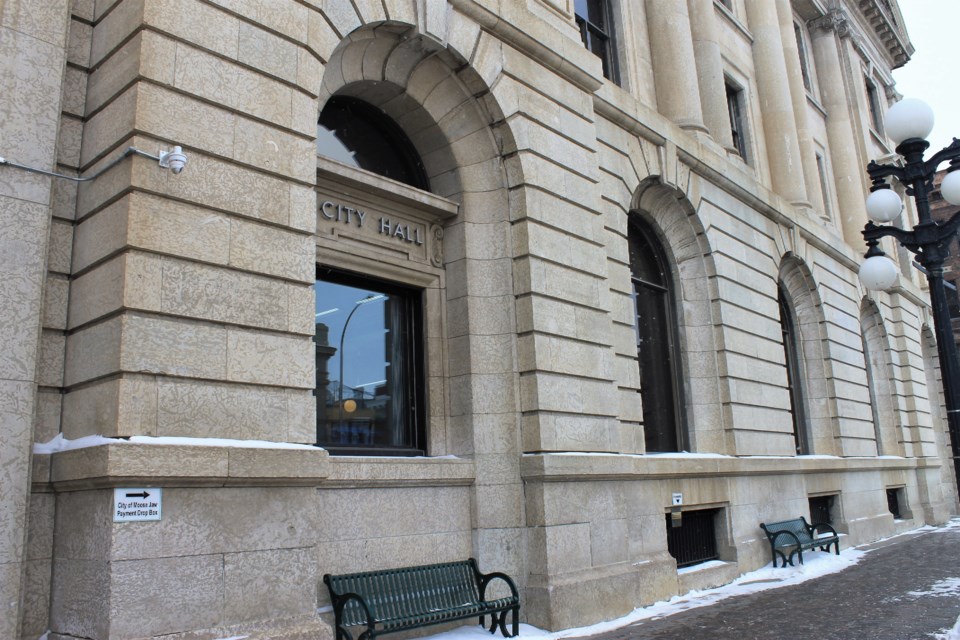After initially predicting that the City of Moose Jaw would finish 2020 with a surplus of $30,000, city hall now believes that figure will turn into a deficit of nearly $200,000.
City administration indicated during the Feb. 16 regular council meeting that the municipality could see a surplus of $29,854 to end the 2020 fiscal year, based on unaudited revenue and expense statements. However, during the May 25 meeting, new data showed that the deficit in the general revenue fund could be roughly $194,000.
“A number of additional expenses came in since that time (February), with the major ones relating to the allowances for doubtful taxes and doubtful accounts, which accounted for about $150,000 of the change,” finance director Brian Acker said.
“There were also some other areas with smaller expenditure increases. The overall deficit amount could still change subject to the completion of the annual audit.”
City hall will likely use the accumulated surplus account — the rainy day fund — to cover the deficit.
The last time the City of Moose Jaw had a deficit was in 2018.
First-quarter finances
The projected deficit was part of a report Acker presented about the municipality’s finances during the first quarter of 2021.
City hall faced a deficit of $36,525 in municipal taxation, compared to $30,520 during the same time last year. However, Acker pointed out the initial revenue — or lack thereof — is not indicative of the total revenue expected this year.
The budget for municipal taxation this year is $29.2 million.
Revenues
Other revenue categories show:
- Licences and permits were at $851,575, an increase of $450,532 compared to last year, due to a rise in building permit revenue
- Service charges were $73,376, compared to $13,959 in 2020, due to an increase in tax enforcement charges and increased planning and zoning fees
- Law enforcement was $172,661, down by $31,727 compared to the same time last year
- Fines and penalties were $110,065, a drop of $18,707 compared to Q1 last year
- Recreation services revenues were $536,905, a drop of roughly $195,000 over 2020 due to the pandemic
City hall received $2.9 million in total revenues during the first quarter of 2021, an increase of $366,168 compared to the same time last year. However, Acker noted that the municipality receives most of its revenue later in the year.
Expenses
Expenses in general government were $2.2 million, an increase of roughly $483,000 compared to 2020. This was due to costs for a new information technology system, increases in salaries, and timing issues with a rebate from the Workers’ Compensation Board.
Public works had expenses of $1.14 million, an increase of $285,466 from the first quarter of last year. This was mainly due to an increase in snow clearing costs this year.
A category for reserves and allowances had expenses of $587,948, compared to zero the year before. This area, Acker explained, absorbs the initial costs for retroactive salaries and will be cleared out in the second quarter when the funding is credited.
“It’s just a timing issue,” he added.
The transit department had revenues of $414,951 and expenses of $415,459 during the first quarter, compared to $421,036 and $421,036, respectively, last year.
The waterworks had revenues and expenses of $3.2 million, compared to $2.8 million respectively last year. This is due to additional revenue from new meter reading routes.
Sanitary sewer had revenues and expenses of $2.3 million, compared to $2.1 million, due to differences in meter reading routes and increased usage.
Solid waste had revenues and expenses of $641,225, compared to $758,486 last year. This is due to less revenue from garbage collection, the landfill and curbside recycling.
Total municipal expenses in Q1 were $11.8 million, a drop from $14.2 million in 2020.
After Acker’s presentation, council voted unanimously to receive and file his report.
The next regular council meeting is Monday, June 14.






